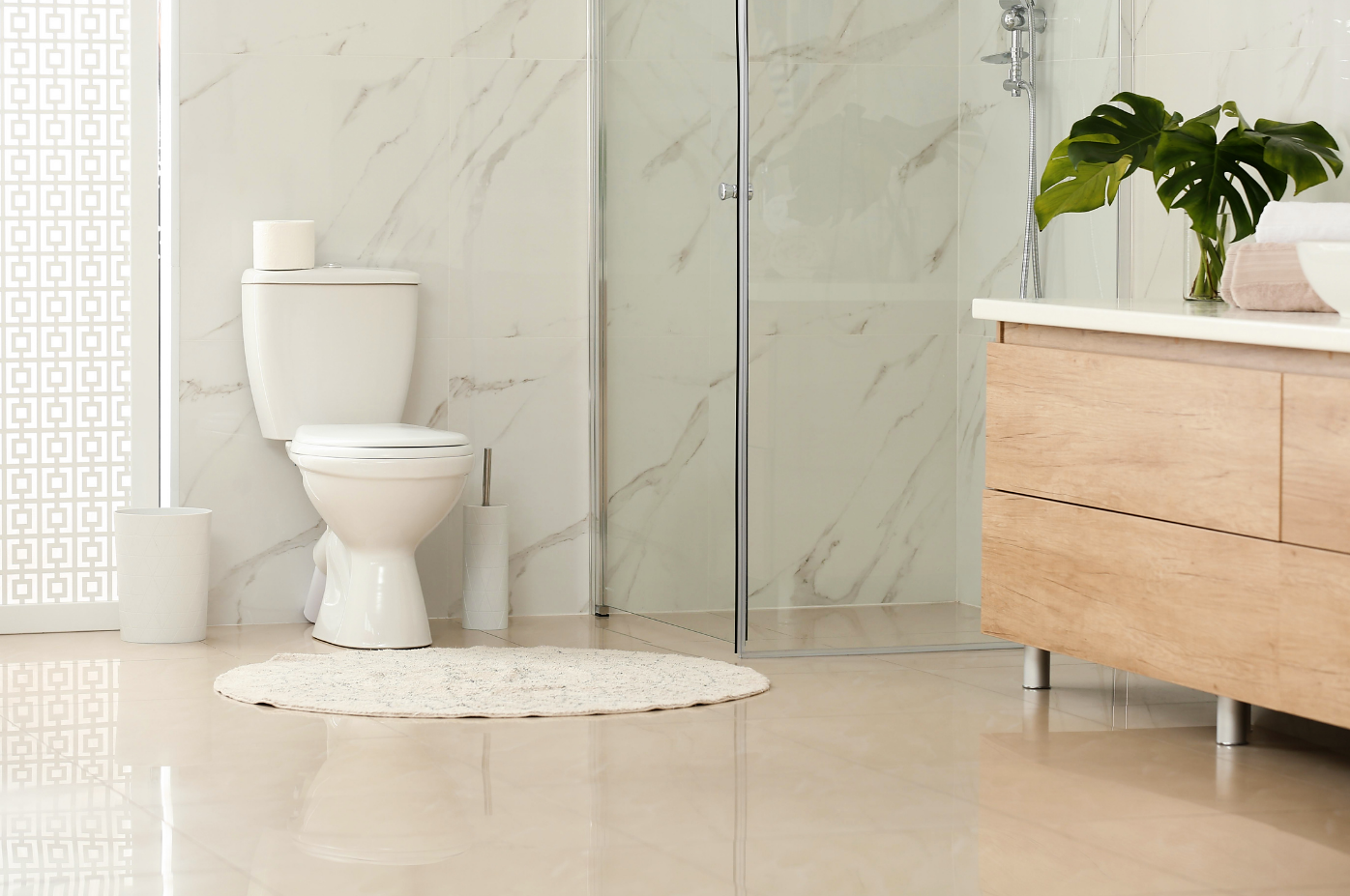
September 15, 2021
There are a lot of plumbing misconceptions that can cost you as a homeowner. Below are common plumbing myths with explanations of why these statements are not true and a solution for the problem!
Placing a brick or bottle in your toilet tank will save you money on your water bill.
False! These methods can prevent your toilet from flushing properly and actually cause it to use more water. Over time the brick will begin to disintegrate causing the parts in the tank to break.
Solution: Replace old toilets with new standard or high-efficiency toilets. Older toilets use 3-4 gallons per flush compared to the new standard and high-efficiency toilets use 1.28 to 1.6 gallons per flush.
Pour boiling water down the sink to clear your drains.
False! Depending on the type of pipe installed in your home pouring boiling water down the sink could cause a lot more harm than good. PVC is rated for only 140 degrees Fahrenheit. Pouring boiling water down the drain can melt and break down the pipe causing leaks and other problems. Although cast iron and copper can withstand the temperature of boiling water, the water will not clear the drain. It may open up a small hole for drainage but will not clear out the blockage.
Solution: Use a mechanical snake to clear the drain. Mechanical snakes are designed to clean the whole inside diameter of the pipe compared to liquid drain cleaners which only clean the bottom of the pipe. For a more stubborn clog, you may need to call a plumber to use a drain-clearing machine such as a FlexShaft. If your sink is not draining at all do not pour any chemicals down the drain! The chemicals will just sit on top of whatever is blocking your pipe and can be very dangerous to whoever cleans it out.
It is okay to flush wipes as long as the package says they are flushable.
False! Although many wipes are advertised to be flushable, they do not biodegrade quickly enough to keep from blocking up the pipes and septic or sewer. Flushing wipes often can cause significant damage or create problems that can be costly to repair.
When wipes are flushed frequently, they build up in the pipe and cause a blockage that is typically too far down to unclog without plumbing equipment. A septic tank will fill up quicker and the leach lines may become clogged due to flushing these wipes since they stay solid and do not break down like toilet paper. A sewer can have a partial or full blockage that backs up and floods your home.
Solution: Toilets are designed to dispose of human waste and toilet paper. Throw anything else into a waste basket. Another option would be to install a bidet toilet seat. Being proactive and knowing the signs of a blockage can also help save you time and money. Slow-flowing drains, air bubbles in the toilet and a gurgling shower drain can all be signs of a sewer blockage. At Enduric Plumbing Services Inc, we can camera your lines and offer solutions for any problems we encounter. Afterward, we will send you a copy of the video with the technician’s voice walking you through exactly what you see on the screen. If you are purchasing a home, it is a good idea to have the septic or sewer inspected so you do not have any surprises down the road.
If you hear gurgling or bubbling from your water heater it means it will explode or stop working.
False! A water heater that is gurgling or bubbling typically has a buildup of sediment. This can be slightly different depending on the type of water heater you have. For an electric water heater, calcium will build up on the element and as the water heats up the elements expand, and the calcium pops off creating the sound. With a gas water heater, sediment settles on the bottom of the tank and as the water heats from the bottom of the tank the sediment gets moved around causing the noise.
Solution: Flushing a water heater is part of the recommended maintenance. Keeping up with your water heater’s regular maintenance will help extend the life of your water heater and lower your power bill.
You can pour anything down a garbage disposal if you run water at the same time.
False! Although you should run cold water while running your garbage disposal the name of this appliance can be misleading. Garbage disposals are designed to grind up food waste so that it can flow through your plumbing system without causing blockages and build-up. While your garbage disposal may be powerful enough to grind up many items, the plumbing system connected to it is prone to clogging with certain items.
Solution: Following the manufacturer’s guidelines can help extend the life of your appliance. Try to avoid putting starchy foods, fats, oils, grease, and foods that do not decompose quickly down the garbage disposal to help prevent blockages in your pipes.


